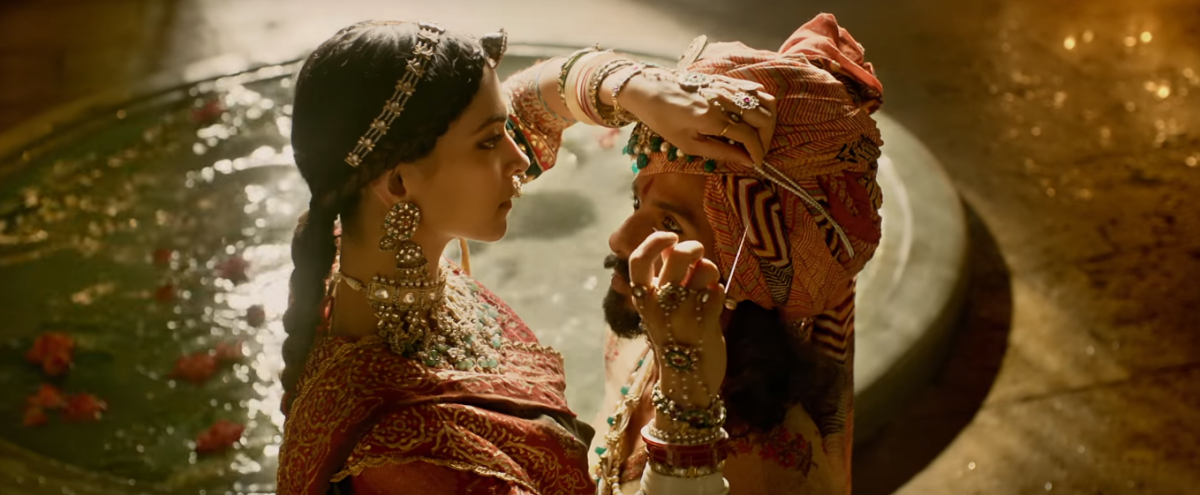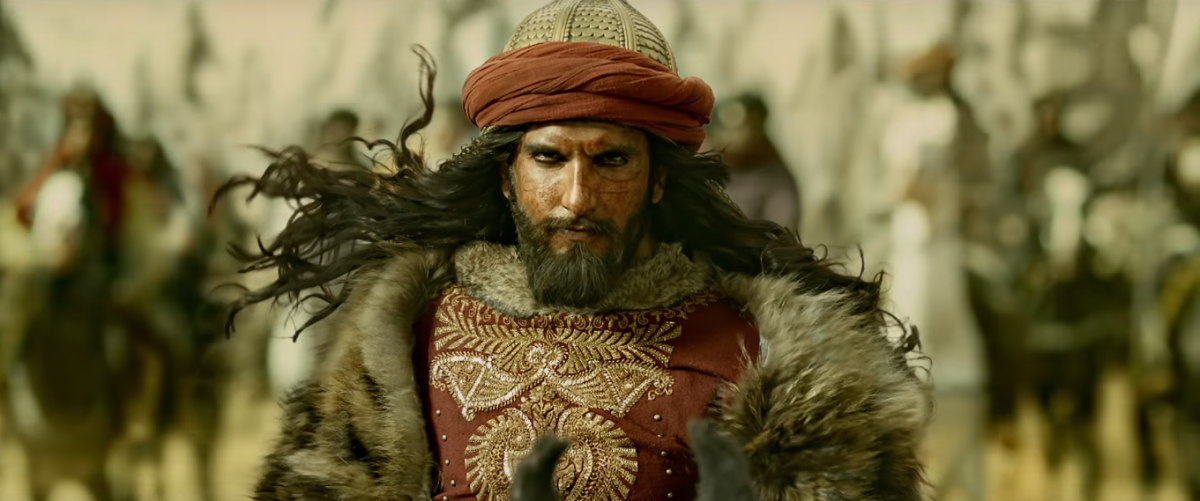I was seven years old when my father had brought us the DVD of Hum Dil De Chuke Sanam. Films, a privilege in my childhood, were something left to be seen in an unforeseen future, thanks to the strict instructions of my mother. So when the family would find a temporary haven in the various towns my father would be posted in due to his profession, the textbooks were imprisoned in the cupboards, and the fascinating “color” television, with its cable connection, would be the showstopper every evening.
In such an evening, I watched my second Bollywood film (the first being Taal) with my sister. Truth is, I didn’t much care about the story then, perhaps because at seven I was ill-equipped to understand it, or perhaps I was too intrigued to swallow in the visual art of every frame in a Bhansali movie. But even at seven, I knew that Aishwarya singing with a sitar on a palatial marble terrace in ‘Albela Sajan’, or a lovesick Salman chasing a lehenga-clad Aishwarya across the amber courtyard in ‘Aankhon ki Gustakhiyan’ were frames to remember.
Days later, I would find myself in silent afternoons, dancing to ‘Nimbooda Nimbooda’ and ‘Dholi Taro Dhol Baje’, my mangy bob-cut hair never stopping me from reveling the essence of my then-untouchable womanhood. That was the power of Sanjay Leela Bhansali’s films, it could even bring a wild child to desire of waist-length hair, doe eyes and blooming crimson lips, all wrapped in the silk of monochrome sarees.
Of course, I grew up after. I realized that a woman can be just as much a feminine goddess in a bob cut as she was in her flourishing raven mane, her unending braid twirling with every bounce of her hips. Of course, I grew up to know that every single one of these images in my head are just constraints that social standards set women to fit into, to box into, in order to comply individuals into set identities.
But then again, how can you ever outrun childhood?
How can you outrun the stories you read as a child?
In our little ways, we always find our way back into the altar of our childhood. A certain song, the lines of a poem we had read oh so long ago, perhaps even a quote from our favorite childhood novel, and suddenly the world around us deconstructs itself to reveal the pictures of our days of yore. After all, we are just children hiding under the masks of adulthood.

So when I saw the trailer of Padmavati, Bhansali took me down memory lane. Perhaps it was the hauntingly beautiful background score, perhaps it was Deepika Padukone gracefully walking in those decadent Rajasthani sarees as the jewelry weighed her down, perhaps it was Ranveer Singh as Alauddin Khilji, roaring and laughing menacingly, and sending the subtlest shivers down my spine; whatever it was, the stories that my mother would read me by my bedside enlivened before my eyes once again.
I remembered the nights when Mother would read about Rani Padmavati, a fearless Rajasthani queen who burned herself alive with her hundred handmaidens, in order to escape a brutal fate in the hands of the Sultanate emperor Alauddin Khilji. Mother had described to me jauhar, the custom of immolating oneself alive in the name of honor, she had told me about sepaku, the custom of the Japanese samurai, and I remember how petrified I had been that night. I remembered my dreams of faceless women jumping into pyres, of men stabbing themselves with their swords before surrendering to their enemies. And I had held onto my mother’s arms in my dreams, and she has protected me ever since.
I do not know if Rani Padmavati truly existed in reality. In my adolescence, my cynical self had gone on to read a translated version of Malik Muhammad Jayasi’s epic poem Padmavat and almost laughed at the descriptions of magical talking parrots and women so courageous that their ideals seemed borderline delusional. And in my adulthood, I had realized that Padmavat, if not anything, was a brilliant piece of Sufi literature, and a pioneer in the genre of magic realism (and here you were thinking that only Marquez in the West and Murakami in the East were scribbling about talking cats and worlds with two paper moons).
But the past month, I had waited eagerly for December 1, when Padmavati would grace the theaters in my city. I was already assured about the the thousand criticisms it would receive, how every one of the magazine critics would fall upon the film’s cadaver like ravenous hyenas and cut it open with a milieu of complicated phrases. Yet, the child in me could not wait to see her most memorable folktale come live on screen.

And then the media hit with the news of the film’s ban, all at the behest of a religious extremist right-wing group called Karni Sena, who seem to be under the belief that by banning this film, they would be protecting the respect and honor of women. Suddenly, the newspapers, the news channels, even my Facebook news feed, are littered by the updates about an extremist group wanting the heads of Deepika Padukone and Sanjay Leela Bhansali.
Films, at the end of the day, are the expressions of art, and my country, as much as I love her, has imprisoned art. Suddenly, the censor board is no longer the only patriarch in judging the quality of films. Suddenly, sentiments of every extremist group need to be satiated for the release of a film. Suddenly, art is an adulterous woman being stoned to death in a field of sand and blood.
An anecdote here, India has no dearth of raunchy, borderline sexist, slapstick sex comedies that are home to a hundred double entendres. Most of them do not even include a single ‘A’ certificate. Yet, the minute when a film is aligned by any form of political agenda, it bites the dust, a recent example of that being 2016’s Udta Punjab.
And this petrifies me. For I am a peddler of art, I live in words, I find stories in between the lingering silences of conversations and I dwell between the precipice of dying utopias and merging realities. So today, something has died inside of me. Maybe it is the memory of the lilt in my mother’s voice as she described Rani Padmavati’s beauty, maybe it is the image of a seven-year-old me dancing to ‘Nimbooda Nimbooda’ in one maudlin summer afternoon; whatever it is, I know a fragment of my childhood was still here until this moment. And now, it is gone.
